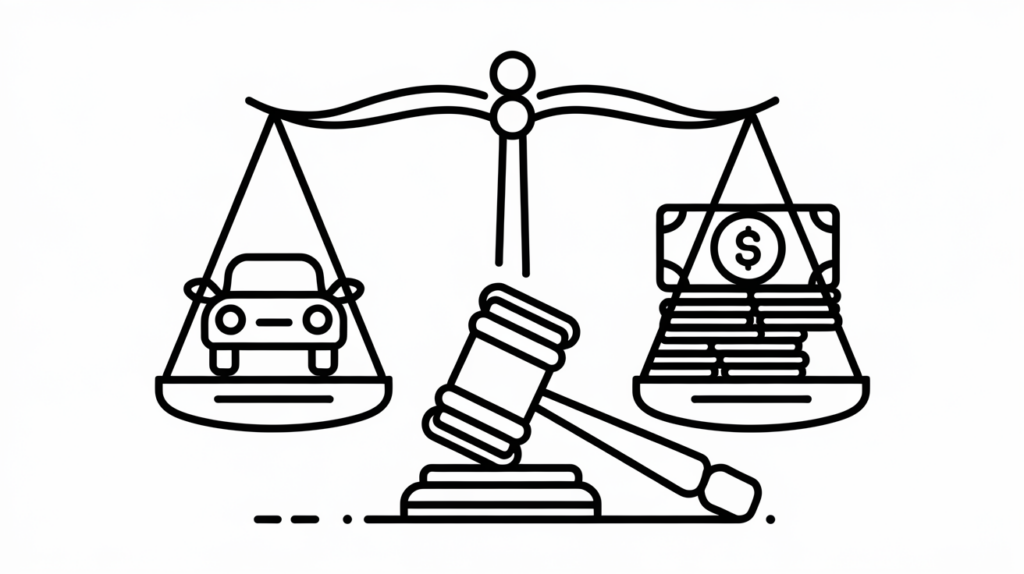Lemon laws exist to protect consumers from the burden of purchasing or leasing defective vehicles or, in some cases, other consumer goods. These laws provide a legal remedy when manufacturers fail to repair significant defects after a reasonable number of attempts. This report examines the workings of lemon law practices, their profitability, and the ethical considerations that arise within this specialized legal field.
The Foundation of Profitability: Fee-Shifting Provisions
The financial viability of lemon law practices hinges on fee-shifting provisions. These provisions, present in most lemon laws, mandate that manufacturers pay the consumer’s reasonable attorney fees if the consumer prevails in a lemon law claim. This shifts the financial burden away from the consumer and incentivizes attorneys to represent clients who might otherwise be unable to afford legal representation.
While fee-shifting is essential, it’s important to note that its implementation varies across states. Some states have caps on attorney fees, while others employ a “reasonable fee” standard, often determined by factors such as the attorney’s experience, the complexity of the case, and the results achieved.
High Volume, Early Settlements, and Revenue Generation
Lemon law practices often adopt a high-volume approach, similar to personal injury firms. This allows them to generate consistent revenue by handling a large number of cases. Many cases settle early in the process, as manufacturers aim to avoid protracted litigation and potential damage to their reputation.
Typical settlement amounts can range from $10,000 to $20,000 for early settlements, increasing to $30,000 to $50,000 for cases involving discovery and motions. Cases that proceed to trial, though rare (less than 1%), can yield significantly higher settlements, sometimes exceeding $100,000.
The Crucial Role of Marketing and Client Acquisition
In the competitive landscape of legal services, effective marketing is paramount for lemon law practices. Large firms often allocate substantial budgets to advertising, utilizing billboards, social media campaigns, and online advertising to reach potential clients. Smaller firms may rely more on referrals, online presence through search engine optimization, and collaborations with consumer advocacy groups.
Litigation Tactics: A Spectrum of Approaches
Lemon law attorneys employ various tactics to achieve favorable outcomes for their clients. Some adopt aggressive litigation strategies, leveraging motions and discovery to exert pressure on manufacturers. Others prioritize negotiation and cultivate positive relationships with defense attorneys to facilitate quicker settlements. The chosen approach often depends on the specific case, the attorney’s experience, and the client’s preferences.
Profitability and its Influencing Factors
The profitability of a lemon law practice can vary significantly. Successful firms can generate annual net profits ranging from $150,000 to over $1 million. Factors influencing profitability include the firm’s size, location, caseload, operational efficiency, and the attorney’s expertise and negotiation skills. While some firms achieve substantial financial success, others may face challenges, particularly in highly competitive markets.
Ethical Considerations and Challenges
While lemon law practices can be lucrative, ethical considerations are crucial. Some firms might engage in practices that prioritize their own financial gain over their clients’ best interests, such as misleading clients about potential costs or pushing for higher fees that diminish the client’s net recovery. Choosing reputable attorneys who prioritize ethical conduct and transparency is essential for consumers seeking legal assistance.
Emerging Trends and Challenges
The automotive industry is undergoing rapid transformation with the rise of electric vehicles (EVs) and autonomous driving technology. This presents new challenges for lemon law, as defects related to batteries, software, and sensors may require specialized legal and technical expertise.
Additionally, potential legislative changes, like California’s AB 1755 (though not yet passed), could impact the volume and profitability of lemon law cases by altering aspects of the fee-shifting provisions or the criteria for establishing a lemon.
Conclusion
Lemon law practices play a vital role in consumer protection, offering legal recourse for individuals burdened with defective vehicles. Fee-shifting provisions, high case volume, and the prevalence of settlements contribute to the profitability of these practices. However, success necessitates a comprehensive understanding of lemon laws, effective marketing strategies, and a commitment to ethical conduct.
As technology advances and legislation evolves, lemon law practitioners must adapt and remain informed to effectively represent their clients and navigate the complexities of this specialized field.
Need help with your lemon law practice’s finances?
XOA TAX provides expert accounting, tax, and financial consulting services tailored to law firms.
Contact us today:
- Website: https://www.xoatax.com/
- Phone: +1 (714) 594-6986
- Email: [email protected]
- Contact page: https://www.xoatax.com/contact-us/




 anywhere
anywhere  anytime
anytime